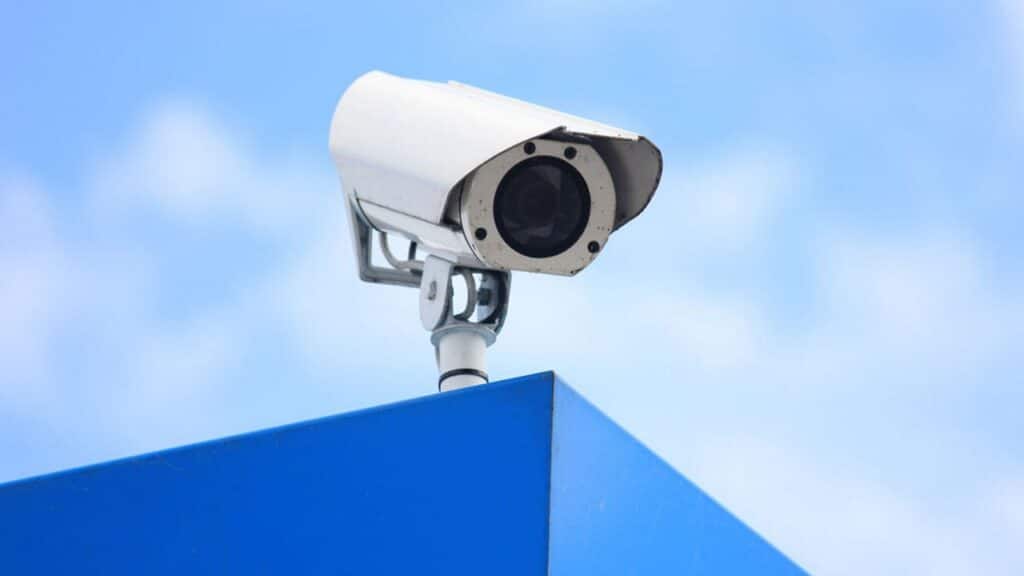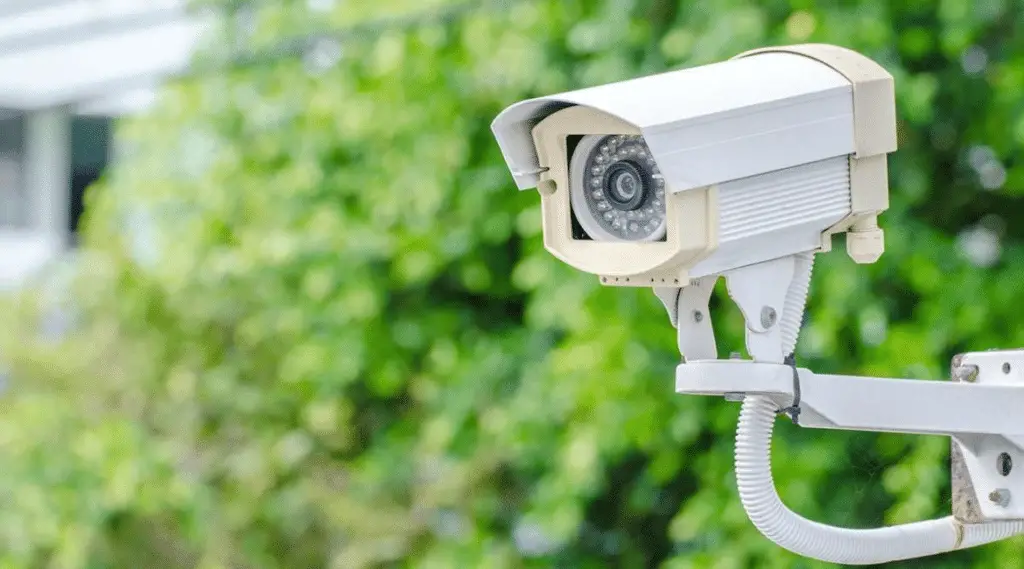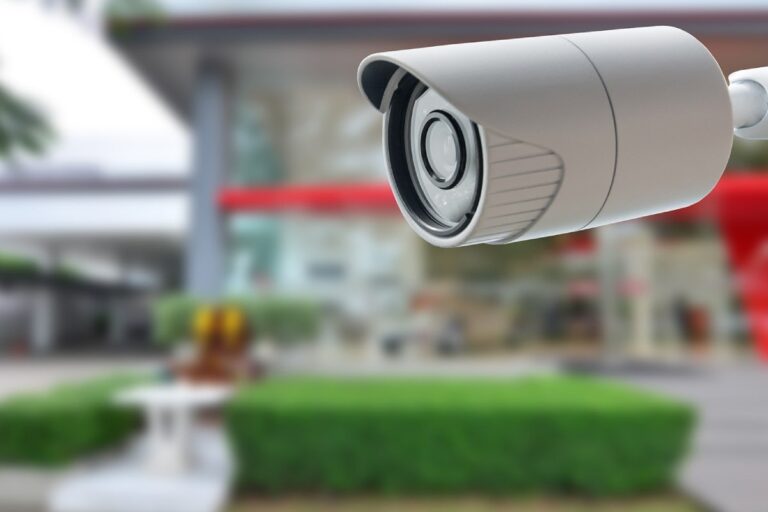Introduction
How Long Do Surveillance Cameras Record: Surveillance cameras have become an integral part of our modern world, providing a sense of security and monitoring in various public and private spaces. These cameras serve as silent sentinels, capturing and recording events, both mundane and critical. The duration of surveillance camera recordings depends on several factors, including the type of camera system, storage capacity, and the purpose of surveillance.
Traditional analog systems often had limited storage capabilities, requiring frequent manual intervention to overwrite or delete old footage. However, with the advent of digital technology, the landscape of surveillance has evolved significantly. Modern surveillance cameras employ digital recording systems, allowing for more extended periods of recording and greater storage capacity. Digital video recorders (DVRs) or network video recorders (NVRs) are commonly used to store the recorded footage.
The duration of recording depends on the available storage space and the recording settings, such as resolution and frame rate. The specific duration of surveillance camera recordings can vary widely. Some systems may retain footage for a few days, while others can store recordings for several months. Legal constraints, surveillance environment, and camera operator preferences affect retention periods.

Is security camera footage kept forever?
Some people keep the footage for a few days, while others keep it forever. However, the footage is typically stored off-site on the cloud provider’s servers if you have a cloud-based security camera. The length of time the footage is stored will depend on the provider, but it is usually around 30 days.
Not all security camera video is preserved indefinitely. Most security systems use a loop recording mechanism to replace old video with fresh recordings when storage is full. Legal constraints and storage capacity determine retention time.
Security camera video storage depends on many factors. Local regulations and industry standards may require businesses to preserve footage for days or months. Video is kept for evidence and investigations.
Retention duration also depends on storage capacity. Digital technology has made storage devices cheaper and more powerful. Keeping massive volumes of video data forever is impractical and expensive.
Do security cameras record everything?
The answer to this question is both yes and no. Most home security cameras will record continuously, but there are some that have settings which allow you to choose when they record. This means you may test your home security camera’s privacy settings if you’re concerned.
Security cameras do not record everything in an absolute sense. They can record a lot of video, however it depends on variables.
Firstly, the field of view and placement of security cameras determine what areas and activities are within their sight. Cameras can cover specific areas or have a wider field of view, but there are limitations to their coverage. The camera may miss blind spots or places beyond its range, producing gaps in surveillance images.
Secondly, the recording capabilities of security cameras can differ. Some cameras may have limited storage capacity, resulting in shorter recording durations. Camera settings like motion detection and scheduled recording may also affect footage. Continuously recording cameras catch more video than motion-activated cameras.
Thirdly, factors such as lighting conditions, camera quality, and environmental circumstances can affect the clarity and reliability of the recorded footage. Low-light conditions, weather conditions, or obstructions can impact the visibility of the recorded events.
Does surveillance camera record voice?
Most IP security cameras are capable of recording audio, though you can choose to turn this on and off. Two-way audio is also a common feature of security cameras that work with a phone.
Surveillance cameras typically do not record voice unless they are specifically equipped with audio recording capabilities. While some security cameras have built-in microphones or audio input ports, many standard surveillance cameras focus solely on capturing visual information.
The inclusion of audio in surveillance systems relies on numerous criteria. Whether audio recording is allowed or depends on legal and privacy issues. Audio surveillance is regulated in many countries, and subjects may need permission.
When audio recording is enabled, it can provide additional context and information to complement the visual footage. Audio can capture conversations, sounds, and other auditory cues that may be relevant to investigations or security monitoring. However, it is crucial to handle audio recordings with care and respect privacy rights.
Given the potential privacy concerns and legal complexities surrounding audio recording, many surveillance systems default to capturing only video. This helps to minimize the risk of infringing on individuals’ privacy rights and mitigates legal issues associated with unauthorized audio surveillance.
How much memory do surveillance cameras have?
Let’s get started with some fundamentals of good CCTV storage. Essentially, CCTV storage varies broadly between the range of 6GB and 6TB. While 6GB – 60GB works well in the case of motion-based and low-resolution cameras, those with recording at higher resolution require 600GB – 6TB.
Surveillance cameras’ memory depends on their kind, storage technology, and system setup.
Modern security cameras save video on hard disks, solid-state drives, or NAS systems. These storage devices may hold a few gigabytes (GB), several terabytes (TB), or even petabytes (PB) in more sophisticated systems.
Surveillance cameras demand memory based on the resolution and quality of their video, the frame rate, and the length of the recording. Cameras with better resolutions and frame rates need more memory to store the same video.

Do all surveillance cameras record?
The answer to this question is both yes and no. Most home security cameras will record continuously, but there are some that have settings which allow you to choose when they record. So, if you’re concerned about your privacy, be sure to check the settings on your home security camera to see how it works.
Surveillance cameras are meant to record video, but not all do. Some surveillance cameras only transmit live footage to security staff or monitoring stations.
Whether security cameras record depends on their usage, budget, and video system demands. Cameras that can’t record may be placed in high-traffic areas to prevent and assure.
A lot of security cameras can record automatically or are connected to DVRs or NVRs. These gadgets can store and play back video images for review, investigation, and proof.
What is the common recording duration for surveillance cameras?
The common recording duration for surveillance cameras can vary depending on several factors, including the storage capacity of the recording device, the quality of the recorded footage, and the specific requirements of the surveillance system.
Surveillance cameras often record 24/7. Due to practical constraints, unlimited data storage is not possible. Most surveillance systems use loop recording.
When storage space is full, loop recording lets you erase past videos and add new ones. How long a loop records relies on how much space is available, the video quality and frame rate, and whether the camera is moving or doing something.
The specific common recording duration for surveillance cameras can vary widely. Some systems may retain footage for a few days, typically between three to seven days, while others can store recordings for several weeks or even months. Factors such as legal requirements, the nature of the surveillance environment, and the preferences of the camera operator play a role in determining the optimal recording duration.
How long can surveillance cameras record without interruption?
The duration for which surveillance cameras can record without interruption depends on several factors, including the storage capacity, recording settings, and the specific needs of the surveillance system.
Modern security cameras with DVRs or NVRs may record constantly. The recording device’s storage capacity affects uninterrupted recording time. Multiple terabytes (TB) or petabytes (PB) storage offer extended recording times without operator intervention.
Unfortunately, storage constraints prevent continuous recording indefinitely.As recording space runs out, security systems swap old data with new video. It is possible to record continuously and get the most out of storage space.
The amount of time security cameras can record uninterrupted varies. It depends on storage capacity, recording settings (resolution, frame rate), and camera activity or motion. Higher-resolution or higher-frame-rate cameras may use up storage capacity faster, lowering uninterrupted recording time.
Is there a limit to the recording duration for surveillance cameras?
Yes, there is a limit to the recording duration for surveillance cameras. While the duration can vary depending on factors such as storage capacity and recording settings, there are practical limitations to how long surveillance cameras can record continuously.
The primary factor that determines the recording duration is the storage capacity of the recording device, such as a digital video recorder (DVR) or network video recorder (NVR). These devices have a finite amount of storage space, typically measured in terabytes (TB) or petabytes (PB).When the storage space is full, new records replace older ones in a process called “loop recording.”
Other factors that can impact the recording duration include the resolution and frame rate of the recorded footage. Higher-resolution cameras and cameras capturing at higher frame rates consume more storage space, resulting in a shorter recording duration.
Practical considerations such as power supply, maintenance, and system stability may also impose limitations on the recording duration. Power outages, system failures, or required maintenance may interrupt the continuous recording process, affecting the overall duration.

Conclusion
The duration of surveillance camera recordings varies depending on factors such as the type of camera system, storage capacity, and the purpose of surveillance. With the advancement of digital technology, modern surveillance cameras have significantly increased recording capabilities compared to traditional analog systems.
DVRs or NVRs are used to store recorded footage. Some surveillance systems record 24/7, although most use a loop recording mechanism to delete previous records when storage space is exhausted. Records may last from a few days to many months, depending on legal requirements, surveillance environment, and operator preferences.
The duration of surveillance system recordings plays a crucial role in ensuring the availability of necessary footage when needed. It aids in investigations, provides evidence for security purposes, and can be instrumental in resolving disputes or criminal activities. However, it also raises considerations regarding privacy and data management.

